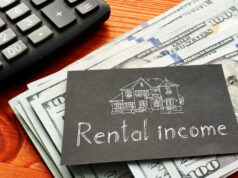There is a saying that 5% of your renters cost you 80% of your time. No matter how hard you try as a landlord, the time will come when you have a problematic or disgruntled tenant. How you handle them depends on the type of problem they’re causing, as we highlight below.
Property Damage

Most landlords know that property damage can be the bane of your existence, particularly with one or two challenging tenants. Being renters, some people have no regard for other people’s property. There are many townhouses that have been damaged by renters and it is a big problem for landlords. Most of the time, the damage is not intentional, but it can still cost a lot of money to fix. But you can avoid some of these issues by doing the following:
- Write a detailed lease: Spell out what you expect to maintain the unit in the lease before you give them the keys.
- Do a complete inspection before they move in: Take pictures and document the condition of the unit. This will give you details to compare with when your difficult renter moves out, so you can legally take the damages out of the security deposit.
- Don quarterly inspections: You should go through your units every quarter and see if any tenants are causing excessive damage. If you know a renter isn’t keeping their end of things, you can hopefully address it before it gets out of control.
If dealing with property damage becomes too much, you could benefit from contacting an experienced property management firm in Houston – please click here to learn more.
Late Rent
When the lease is signed, you should clarify that rent is due by a specific date and a late fee applies every time. Some landlords deal with the pleas about the late fee by telling renters that the late fee is assigned in the accounting system and there’s no way to change it.
But no matter how good your system is, you’ll eventually have a tenant who pays late often. The best way to deal with it is to insist on timely payment and enforce the late fee every time. If you give them a break once, they’ll want it again, and word will get around to other tenants.
If the rent continues to be late, you should post a Non-Payment Of Rent document on their door with a timeline to pay the rent or vacate.
Subletting

Some renters will sublease their unit out to others and not bother to check if it’s ok. In the time of Airbnb, this is how some people have been renting out their places to vacationers.
Of course, the last thing you want is to have a line of unaccountable strangers on your property. And your regular tenants probably won’t approve of it, either.
The best way to handle this, again, is with a well-written lease. Specify precisely how often houseguests can stay in the unit. Of course, you can only be in your tenants’ business so much, but the more details you have in the lease, the easier it is to enforce the rules if necessary.
Complainers
Some renters pay rent on time and never complain. But you may get a renter once in a while who calls or texts you constantly with this or that problem. Some of the contacts might be about minor things that they can handle themselves at minimal expense.
Don’t be at the beck and call of the complaining tenant. Your lease should clearly state what constitutes a ‘serious’ maintenance issue that will be dealt with promptly.
For example, if they complain the AC isn’t cold enough, and you have had it serviced and checked twice, that should be the end of it. However, some people will never be satisfied with the AC unless they can see their breath in the room!
If you are still having trouble dealing with your most challenging tenants, perhaps these tips will help:
Stay Calm

Sure, it’s easy to give this advice, but it’s vital when you are working with one of your more difficult tenants. If you begin to get upset when talking to the person, it will prevent you from agreeing.
Remember, you’re the landlord, so you need to be calm and stay reasonable. If the tenant wants to lose it, don’t take the bait. Tenants will usually be more reasonable when you’re relaxed and in control.
Keep Everything In Writing
There’s no faster way to get into a disagreement with a challenging renter if it’s a ‘he said, she said’ situation. Everything that you tell the tenant needs to be in writing. After every interaction with the tenant, you should note everything communicated on both sides and enter it into your tenant management software.
Also, every repair, service call, and late rent notice needs to be in writing. And when you do inspections of the unit, you need to have documentation, videos, and pictures to back everything up.
Show Renters How To Treat You

Keep in mind that you’re in charge as the landlord, and your actions show the way that you demand to be treated. If you don’t do this, you will find difficult tenants taking you for a ride.
For instance, if your tenant doesn’t pay rent on the 1st and you don’t immediately charge a late fee, they’ll do it again. So, as hard as it can be at times, it’s vital that you consistently enforce the rules and hold all tenants to the same standard.
Don’t play favorites; tenants talk to each other. If you enforce late fees on one tenant but not another, it will lead to more problems and even a discrimination lawsuit in some cases.
Be Kind
Difficult tenants usually argue with a lot of people; you’re probably not the first. But you can disarm the most challenging ones by being kind. Of course, you do need to watch out for them taking advantage of you, but you may be able to build a relationship with them over time.
If you own enough properties long enough, you will inevitably come against difficult tenants. Hopefully, these tips will give you some food for thought the next time you’re dealing with ‘one of those tenants!







